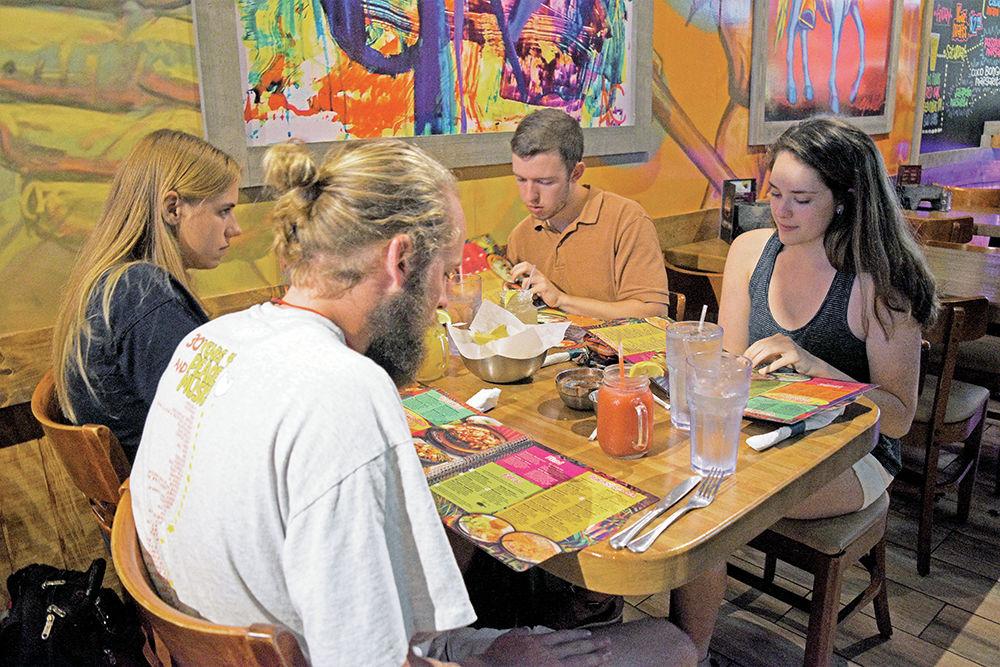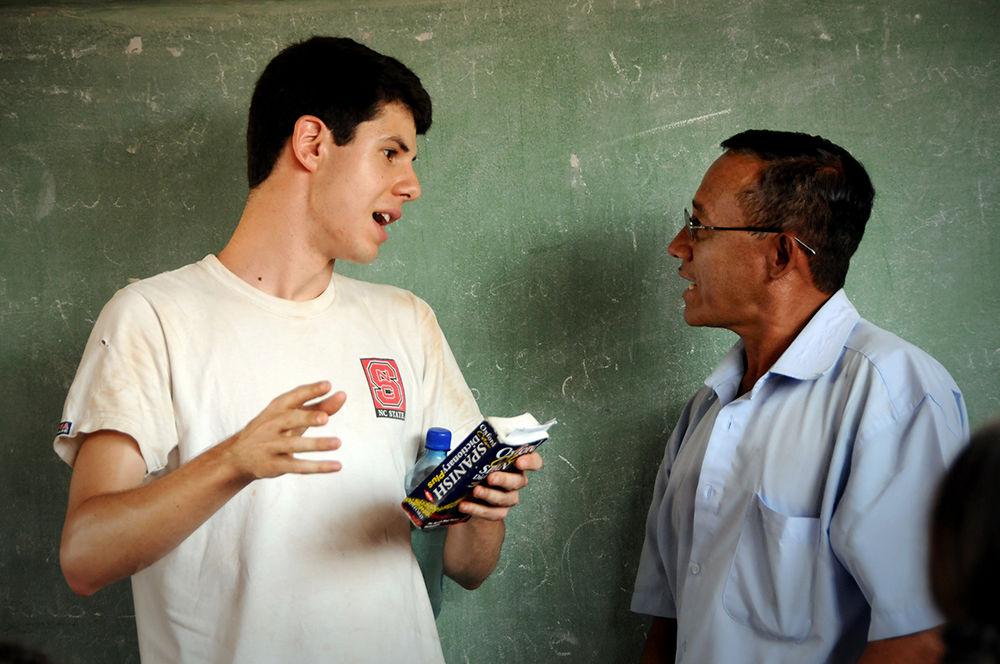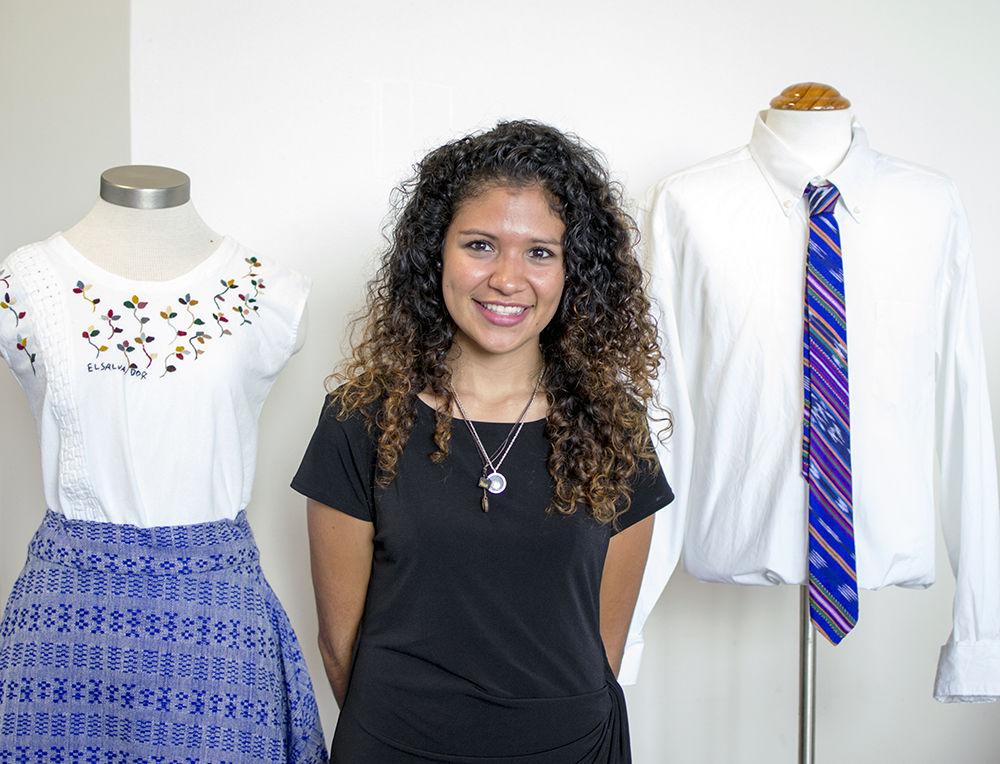The faint smell of mango from mangonadas proliferated through the air as Control, a Mexican regional cumbia group, performed on the main stage as part of La Fiesta Del Pueblo on Fayetteville Street on Sept. 15.
“At least 25,000 people attend our festival,” said Veronica Aguilar, the communications director for El Pueblo, Inc. “El Pueblo is an organization as a nonprofit based here in Raleigh that serves Wake County, surrounding areas and Latino communities. We fight for immigrant rights and organize this festival every year. We’ve been doing so for 30 years.”
La Fiesta Del Pueblo started in Chapel Hill in 1994. A year after, it was born and founded because the creators saw the importance and need for the community to have representation in festivals and become united.
Surrounding the stage are various flags for South and Central American countries such as Cuba, Uruguay, El Salvador, Dominican Republic, Mexico, Venezuela, Costa Rica, Peru, Puerto Rico, Chile, Guyana, Panama, Argentina, Brazil, Paraguay and Colombia.
Attendees danced and cheered, a few of whom waved flags. Sept. 15, the first day of National Hispanic Heritage Month, is an annual tradition lasting until Oct. 15 celebrating the diversity, history and culture of Hispanic people. Its first day is significant being the anniversary of independence for Latin American countries Costa Rica, El Salvador, Guatemala, Honduras and Nicaragaua. Mexican and Chilean independence days are celebrated the following days as well.
“This year, we are happy to bring back our two stages that we did for a long time, but haven’t done for the last five years,” Aguilar said. “It’s really important for us to support the local Latina community and that means bringing more Latina performers and musical numbers onto our two stages, as well as supporting Latino artists.”
Despite cloudy conditions and light rain, attendees enjoyed everything offered at the festival. Up and down the street were tents, some selling items like hats, ponchos and jerseys. Others promoted companies, organizations, and various groups like ACLU North Carolina, Grita Canta Vota, Artesanias Narvarez, Anthromex Studio, Humana and East Coast Migrant Head Start, a nonprofit organization committed to delivering services to the families of migrant and seasonal farm workers.
On the opposite side of the main stage was a smaller stage, where behind it lay a 50-foot inflatable tree, titled “La Ceiba,” by Guatemalan artist Martín Wannam. On the streets intersecting Fayetteville Street were food vendors, including a Puerto Rican food truck, El Tripletazo, selling tripletas, cubans and chicken cracklings. Another, El Sombrero Azul, Salvadorian and Mexican, sold pupusas, tamales salvadoreños and tacos.
Brooklynn Thomas, communications specialist for East Coast Migrant Head Start, took photos at the booth stands and shared the organization’s involvement and goals.
“We help them get an education from zero to six,” Thomas said. “We offer education, family, disability, health, dental and transportation services. We do a lot for the families and help them anyway we can. Once you go to the center, it really touches your heart seeing the children in a safe environment where they’re not in a hot truck or on the fields with their parents, basically working.”
Amidst the celebration, Colombian singer Ana Lucía Divins and Ecuadorian guitarist Carlos Crespo of the band Café Amaretto performed inside the City of Raleigh Museum. The Charlotte-native band’s other members include Carlos Baez and Edgar Marcano. Both Divins and Crespo performed as part of the museum’s “Boleros y Libros” event, simultaneous to La Fiesta Del Pueblo.
“The music that we share through Café Amaretto is traditional Latin American music, such as Boleros or Trova,” Divins said. “This music is really old and has been passed from one generation to the next generation; music that we grew up listening to. I’ve been singing since I was five-years-old. Café Amaretto is a project for us to bring to life some of this music and these genres with a more modern twist. We also make it very interactive and bilingual. We incorporate a little bit of storytelling component that comes with some of these songs and the genres. The educational component is very important for us.”
Divins shared a final message, while several attendees outside snacked on Chicharrones De Harina watching Danza Guerreros Quetzalcoatal de Durham perform. Drums banged, two Mexican flags waved and performers marched.
“As Latinos, sometimes we don’t really pay attention, but it is important to reconnect with those roots, whatever those are,” Divins said. “It can be boleros, other kinds of music and traditions. Pass that to the next generation. Music can be a bridge between our cultures. Discover through music that we do have a lot of things that are more similar than different.”
For more information about El Pueblo visit their website, and for more about Cafe Amaretto, check out their page here.













